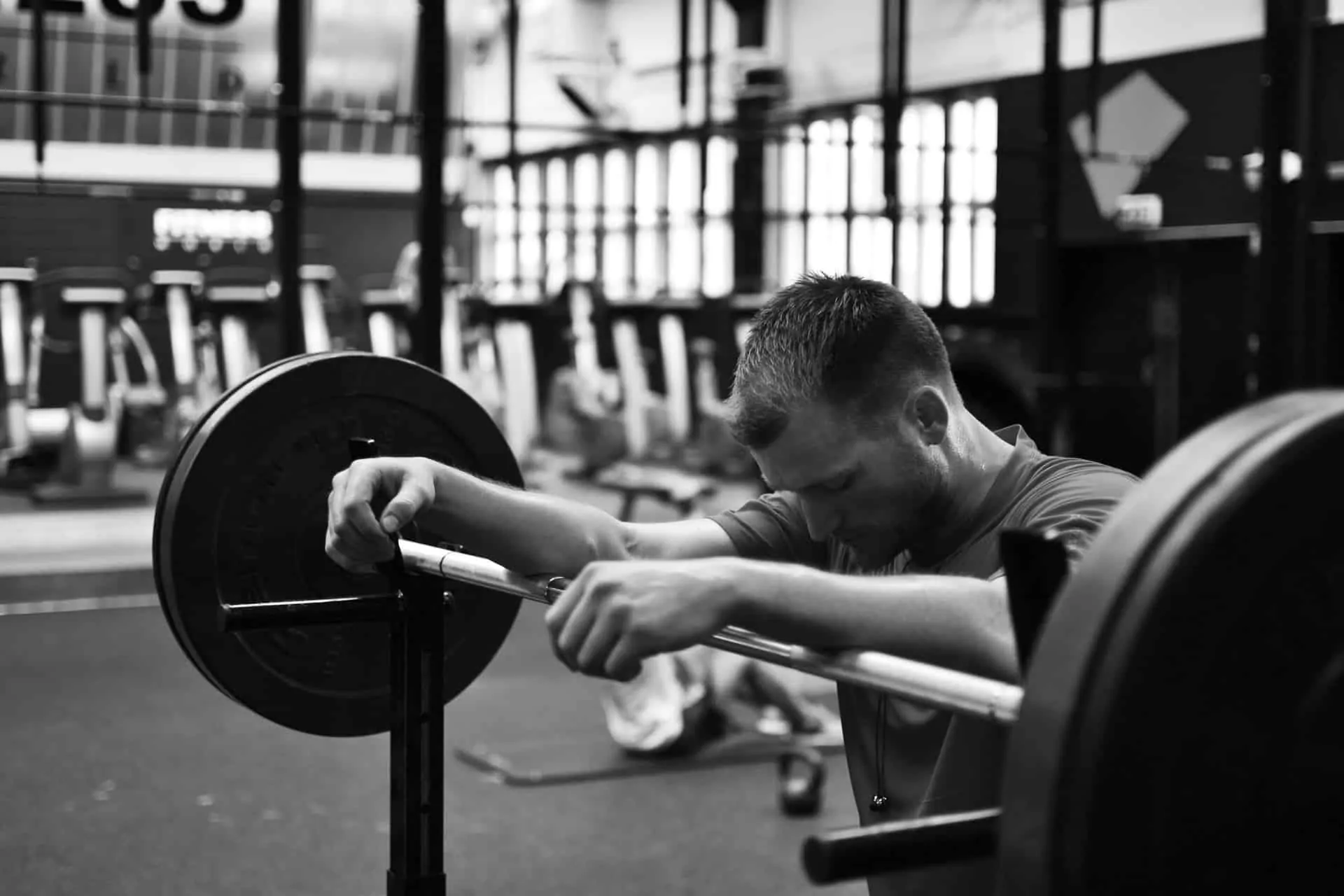
Feeling like your lifts and flows are more difficult than normal, or you’ve plateaued on seeing results? Or maybe you’re just feeling more tired or irritable than usual with no apparent cause?
You might want to check your testosterone levels. Aside from being one of the king hormones of muscle growth and synthesis, test also plays a huge role in energy levels, bone density, mood, red blood cell production, libido levels, and more. And, as it turns out, it’s pretty easy to tank your levels with a few all-too-common habits.
Let’s dive in to what the symptoms of low test are, how you might be unknowingly reducing your levels, and what you can do to boost them.
Symptoms of Low Test Levels
Symptoms of low testosterone levels tend to creep up on you instead of hitting all at once. You may notice you start to have more “off” days where you’re feeling less motivated, or your workouts are tougher than usual. If this feeling is combined with any of the symptoms below (and a rest period isn’t helping), consider that your levels may be low.

• Fatigue
• Low sex drive
• Hair loss
• Gaining body fat
• Losing muscle mass (or unable to gain)
• Mood swings
• Memory issues
Why Your Testosterone Levels May Be Dropping (and how to boost them)
Obviously, our endocrine system is extremely complicated. Low test levels could be caused by any number of factors, including an underlying hormonal issue, or even as a side effect from other conditions you might be dealing with. However, if you’re otherwise healthy, these 4 variables are usually the most common reason you might be seeing a dip your levels.
1. You’re Not Getting Enough Sleep
Slacking on your 7-8 hours is one of the easiest ways to mess with your test levels. In fact, research shows that not getting enough can drop your production to the equivalent of aging 10 to 15 years. One study even showed that in as little as one week, men who were getting only 5 hours of sleep lowered their levels by 10 to 15 percent [*].
This happens because many of our hormones including testosterone are actually produced while we sleep. It’s also why lack of sleep is now seen as a major endocrine disrupter because it literally disturbs our process of producing hormones.
To do: Aim to get at least 7 hours of solid sleep a night. Herbs like valerian root and minerals like magnesium are great for helping you fall asleep and reducing anxiety. As far as specific brands, Green Helix offers a potent blend of kava kava, chamomile, and CBD called Deep Sleep that helps promote regular sleep cycles and deep relaxation so you actually stay asleep throughout the night.
2. You’re Stressed
I know. The last thing any of us wants to hear when we’re stressed is the old, “Keep calm and carry on …” but if you want to boost your test levels, you might want to consider trying to manage your stress levels. Research shows that any type of stress, emotional, mental, and physical (say after surgery) can reduce your levels. And to put the cherry on top, testosterone levels can drop just from anticipating stress. [*]
When we’re stressed, our body releases a flood of hormones that can interfere with normal testosterone production like cortisol and nor-epinephrine. In normal situations where “stress” is only lasting for a few minutes or a day, our hormones return to normal without much damage being done. However, if we’re constantly stressed from work or finances or family (or any other long-term stressor) testosterone levels will be constantly suppressed. This is when we usually start to experience some of the effects of low test that are very similar to burn out from stress, such as low libido, lethargy, and weight gain.
To do: Find ways to manage stress that you enjoy, like yoga, meditation, or even just getting out in nature a few times a week. Also consider trying adaptogen herbs like ashwagandha or ginseng, which help your body adapt to stress over the long term. [*] Other herbs and teas like chamomile and lavender can also help reduce anxiety levels. [*] [*]
3. You’re Eating a Bad Diet
Your body needs nutrients to produce any hormone, so if you’ve been slacking in the diet department, it could be the cause of your testosterone woes. Two common deficiencies that affect testosterone are vitamin D and zinc deficiency, but even basic vitamins such as vitamins E and A have shown in studies to affect levels. [*] [*] Studies also show that supplementing with zinc can even help prevent test levels from dropping in “exhausted” athletes. [*]
To do: Focus on eating tons of whole, fresh foods like greens, veggies, nuts, seeds, berries, and protein. Also add in more nutrient-dense foods that contain vitamin D and zinc, like wild-caught sardines and oysters, as well as foods high in vitamin E like avocado.
4. You’re Overweight
If you’re overweight, there’s a pretty good chance it could be draining your testosterone. This is especially true if you also have blood sugar problems like diabetes or insulin resistance (which are common when it comes to weight issues) because insulin resistance interferes with an important hormone binder called globulin. Globulin controls how much hormone is going into your body’s tissues, so if the process is disrupted, it can prevent testosterone from being delivered. [*]
Unfortunately, being overweight can also create a not-so-great cycle of testosterone problems. This is because having low test levels also increases fat mass, which then feeds into the cycle of insulin and blood sugar issues, which then lowers testosterone even more.
To do: Obviously, losing the extra fat is a top priority to break this cycle and reset test levels. Be sure to also stick to eating mostly healthy fats, proteins, and loads of veggies while avoiding sugar, which can spike insulin levels and make things worse.
Other Tips to Boost Your Test Levels
1. Lift Heavy Weight or Do HIIT Workouts
Moving heavyweight and getting in a few high-intensity workouts a week is one of the best ways to boost your testosterone (one of the many reasons we go hard here). [*] People who work out, and especially those that lift heavyweight, regularly have higher test levels than people that don’t.
2. Eat Enough Healthy Fats
Eating plenty of fat won’t make you fat (I mean unless you’re gorging on 10 avocados a day) so make sure to get in a couple of servings a day. Think avos, nuts, olive and coconut oil, and fatty fish like salmon.
3. Get Enough Vitamin D
Vitamin D or the “sunshine” vitamin plays a crucial role in hormone production. Studies show almost half of the US population is deficient in it, and that supplementing with it can increase testosterone levels by 25 percent. [*]
The best way to optimize your vitamin D levels is to get outside in the sun for 15-30 minutes a day. However, if you live up north or can’t get enough sun every day, try supplementing, and also eating plenty or sardines and salmon, which are rich in vitamin D.
4. Try Intermittent Fasting
Skipping breakfast once and a while might be worth it when it comes to boosting test: studies show it can up levels by roughly 200 percent. [*] This makes sense from an evolutionary perspective, as higher test levels would give you more energy and alertness to find food in times of scarcity.
The most popular method of intermittent fasting is eating your last meal between 6-8 p.m., then fasting until lunchtime, or between 11-1 p.m. This gives you a solid window of about 16 hours of fasting time.
As you can see, many of the things we’re guilty of doing regularly, such as not sleeping enough or eating as cleanly as we should, can put a dent in our test levels. Luckily there are also things that are relatively easy to correct. If you’ve tried optimizing all of these areas and are still feeling like your levels might be low, be sure to get your hormones tested to rule out any other issues.
Have you ever dealt with low test levels? I’d love to hear how you boosted them and what the effects were.[/vc_column_text][/vc_column][/vc_row]